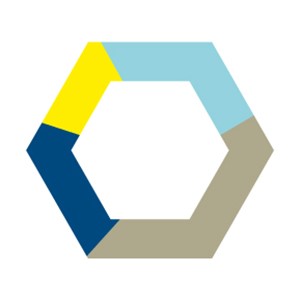- Get directions
- Leave a review
- Claim listing
- Bookmark
- Share
- Report
- prev
- next
- Tuesday, April 20, 2021 @ 10:00 am
Swiss companies are making major contributions to the concerted global efforts in the fight against the coronavirus crisis. Vaccine production and reliable COVID-19 testing solutions were set up in record time. Agility, good preparation and a solid basis of experience were decisive.

Jan Lucht
scienceindustries | Head Biotechnology
The global fight against the COVID-19 pandemic greatly increased public awareness of the important role that science, innovation and modern biotechnology play in the pursuit of health and wellbeing. Just eleven months after the beginning of the pandemic, more than 200 promising vaccine candidates were in development and the first vaccination campaigns
had started.
This was unprecedented in terms of speed of response; something almost no one would have thought possible just a few months earlier. The rapid development of reliable diagnostic tests to detect COVID-19 infections was also essential. Again, every day counted and the healthcare industry managed to develop, validate, register and distribute test systems within weeks of the COVID-19 outbreak.
A rapid response to new situations and sudden changes, often described as ‘business agility’, requires structures and modes of operation that allow for fast and flexible adaptation. During the COVID-19 crisis there have been additional challenges in the form of lockdowns and disruptions to global supply chains. Swiss biotech companies have demonstrated they have what it takes when it comes to agility and they are playing a major role in the global fight against COVID-19.
“On May 1 2020 Moderna and Lonza announced a strategic collaboration to enable manufacturing of up to 1 billion doses of the vaccine per year. Lonza acquired equipment and built the production lines in record time. Normally, a project of this size would take at least two years, but due to the urgency of the pandemic the Lonza team managed it in just
eight months”
Lonza takes lead in vaccine production
Lonza has its headquarters in Basel and its main Swiss R&D and manufacturing site in Visp (Valais). It is a leading supplier to the pharmaceutical, biotech and nutrition industry and is expanding its global role as a CDMO (contract development and manufacturing organization).
In 2017, Lonza launched the innovative biomanufacturing concept Ibex® Solutions. This is a central pillar in the company’s strategic quest to become the world’s leading integrated healthcare solutions provider. And Ibex® has subsequently played a critical role in enabling the ramping up of COVID-19 vaccine production.
Ibex® offers highly flexible, modular development and manufacturing facilities across a range of technologies. Customers are supported by innovative business models which make it possible for drug candidates to reach clinics and markets quickly and for supply to be streamlined to better manage demand uncertainty.
Construction of the Ibex® facility started in 2017. Between 2018 and 2020, Lonza invested CHF 1B at the Visp site. "The production facility is as agile, fast and adaptable as the ibex in the Valais mountains," explains Renzo Cicillini, Lonza Site Head in Visp. This broad range of manufacturing technologies, flexibility and rapid scalability proved invaluable when the COVID-19 crisis hit in 2020.
Moderna decides to manufacture in Switzerland
Moderna, a US company with its European headquarters in Basel, was a front runner in the race to produce a global vaccine. The company finalized the design of its innovative mRNA-1273 inoculation just two days after the virus sequence was made available on January 11 2020. Clinical trials, which started in March 2020, yielded encouraging results and large-scale manufacturing options were evaluated. On May 1, Moderna and Lonza announced a strategic collaboration to enable manufacturing of up to 1 billion doses of the vaccine per year.
The agreement is focused on setting up three Lonza production lines in Visp and a fourth line at Lonza’s site in Portsmouth, adding to Moderna's own facilities in Norwood in the US. Each line at Lonza is expected to deliver the drug substance for around 100 million doses per year, when operating at full capacity. Lonza acquired equipment and built the production lines in Visp in record time, with operations in Ibex® starting in December 2020, just eight months after signing the agreement with Moderna. At a cost of approximately CHF 210M (one line financed by Lonza, two lines financed by Moderna), the three lines will come online sequentially during Q1 2021 as planned.
Lonza’s global presence and expertise were critical factors when it came to scaling production at unprecedented speed. Normally, a project of this size would take two years, but due to the urgency of the pandemic the Lonza team managed it in just eight months.
Clinical tests had shown a very high efficacy of mRNA-based vaccines, like the Moderna and the similar BioNtech/Pfizer products. Large scale vaccination in the first countries started at the end of 2020, with the vaccine ingredient produced by Lonza playing a key role in controlling the pandemic.
To the same end, Lonza is also collaborating with other companies developing vaccines and therapies, including Altimmune for a potential intranasal vaccine as well as AstraZeneca and Humanigen, developing antibody therapies currently in clinical studies. Meanwhile, the Ibex® activities in Visp are being further expanded with biotech projects outside of the COVID-19 response.
Roche enables first commercial COVID-19 test
Testing is critical when it comes to correct diagnosis of patients and the provision of the most appropriate treatment. During a pandemic like COVID-19, the availability of diagnostic tests is also indispensable in identifying virus carriers and thereby limiting further spread of the disease.
The first PCR detection protocols, developed in January 2020 after the SARS-CoV-2 genetic sequence became available, helped to fight the first wave of infection but were often time- consuming and not always reliable. It was therefore a major step forward when Roche received the first authorization for a commercial PCR test for the virus back in March last year. The protocol runs on Roche cobas® analyzers that are widely used in diagnostic labs all over the world. It allows for the automatic, high-throughput analysis of large numbers of patient samples and gives a reliable result in a few hours.
It took just six weeks from the start of the project to the gaining of regulatory approval. This is lightning speed when compared with the 12-18 months typically required for regular diagnostic tests. Roche Molecular Diagnostics, a pioneer and technology leader in the PCR field, was able to move so quickly because of its huge technical experience and good collaboration with regulatory authorities.
Roche quickly ramped up production capacity to provide millions of tests per month, thereby providing a key component in the global fight against the virus. In May 2020, Roche also received authorization for its COVID-19 antibody test and followed up in September 2020 with a rapid antigen test for ongoing infections that gives results in just 15 minutes.
To support COVID-19 therapeutic solutions, Roche has partnered with Regeneron in August 2020 to produce and provide the antibody combination REGN-COV2 for world markets outside of the US. It tests existing compounds from its portfolio for new uses as COVID-19 therapeutics, and works closely with partners to develop and test novel therapies.
Engagement by Swiss life sciences
Other companies are actively engaged in pushing back the virus. Novartis is supporting numerous own and external trials to reprofile existing own pharmaceuticals for the treatment of COVID-19. In October 2020, it announced a collaboration with Molecular Partners to develop DARPin® treatments based on a novel class of protein therapeutics (see "An interview with Patrick Amstutz").
In November 2020 an exclusive worldwide license and collaboration agreement with Mesoblast to develop, commercialize and manufacture remestemcel-L for the treatment of acute respiratory distress syndrome (ARDS), including that associated with COVID-19, was announced. Furthermore, immunologists from the Novartis Institutes for BioMedical Research (NIBR) made important contributions to understanding the pathology of COVID-19.
Sandoz decided to ramp up its European manufacturing capacities for antibiotics and committed for a long-term presence, thus contributing to the safety of supply and fighting possible drug shortages in a field so important in the treatment of co-infections. Janssen Vaccines in Bern, part of the Johnson & Johnson group, is playing an important role in the development of a vaccine candidate that entered Phase III studies in September 2020. Bachem expanded its collaboration with Axon to provide material for a promising peptide vaccine. And companies active in the nutrition field, like DSM, intensified their work on the connection between healthy nutrition and an active immune system.
These are just some of the contributions from Swiss life science companies to help control and eventually subdue the pandemic. Preparedness and a fast and flexible response were essential for an agile reaction to this critical situation. The response to COVID-19 has further highlighted the importance of efficient national and international collaboration, streamlined and pragmatic authorization processes, maintaining supply chains and the exchange of information to master the challenge.
